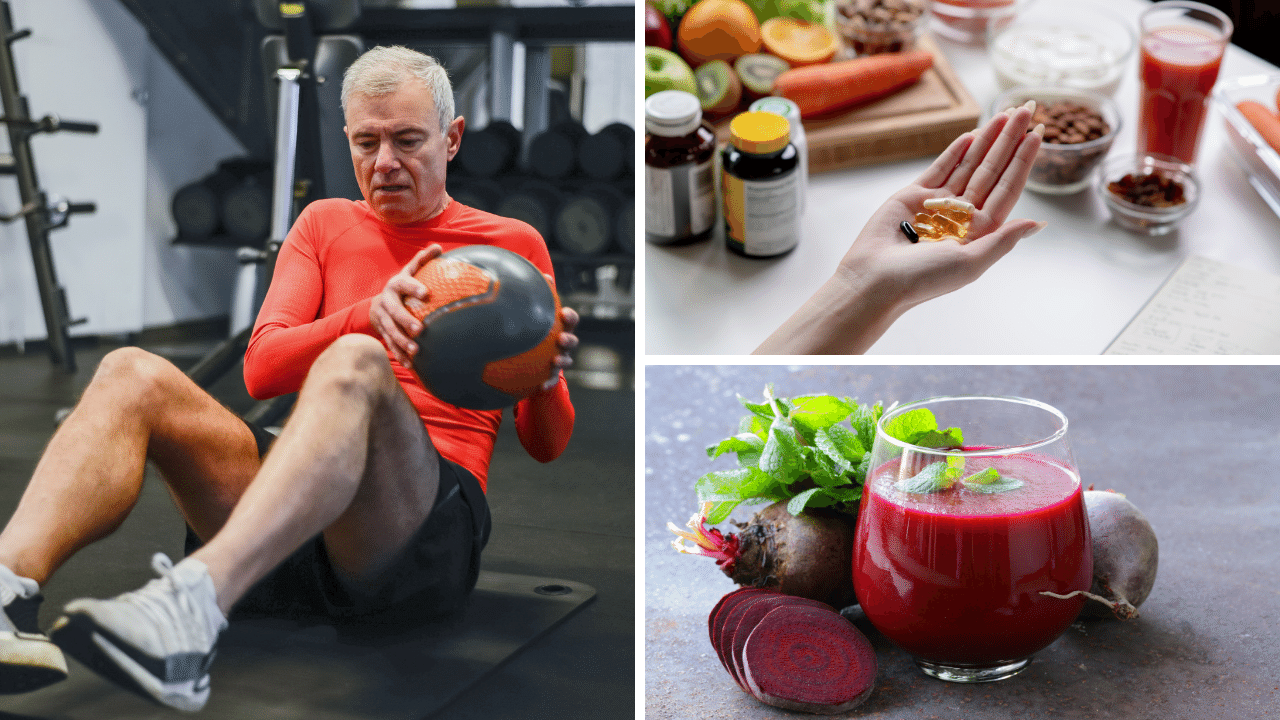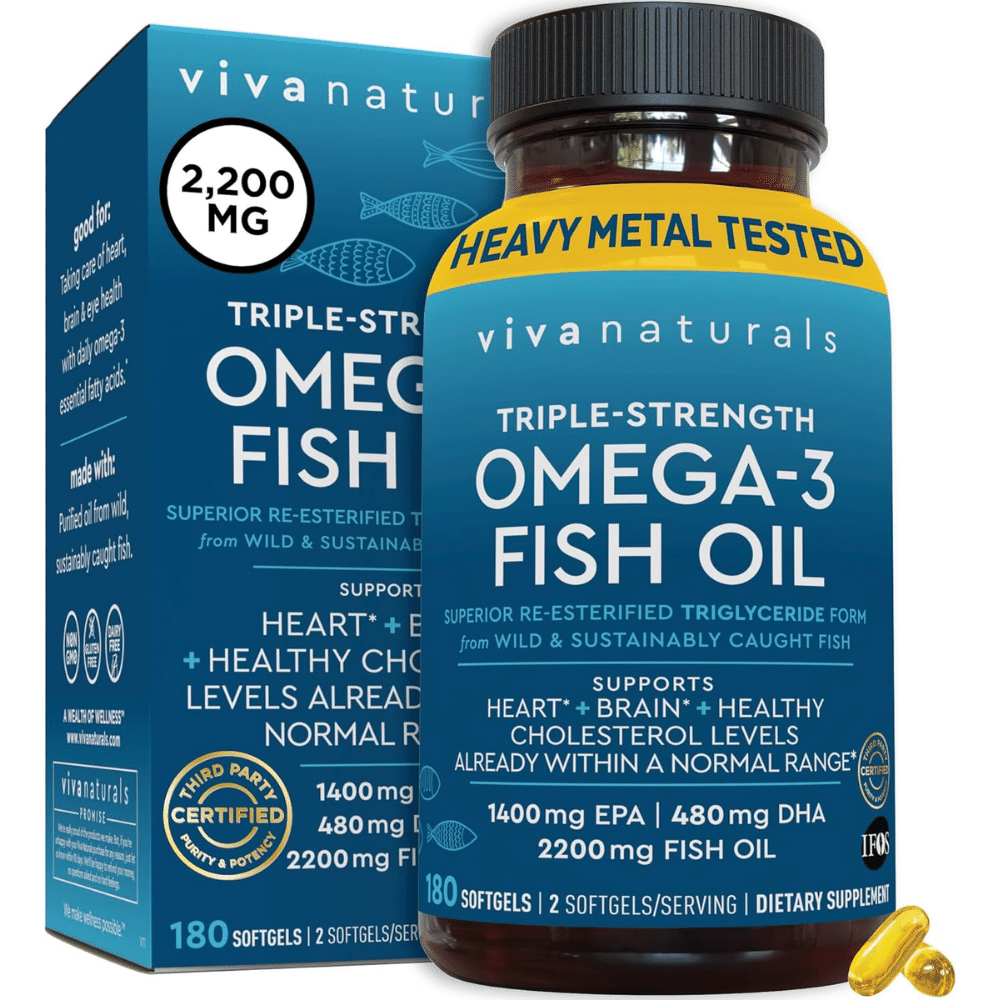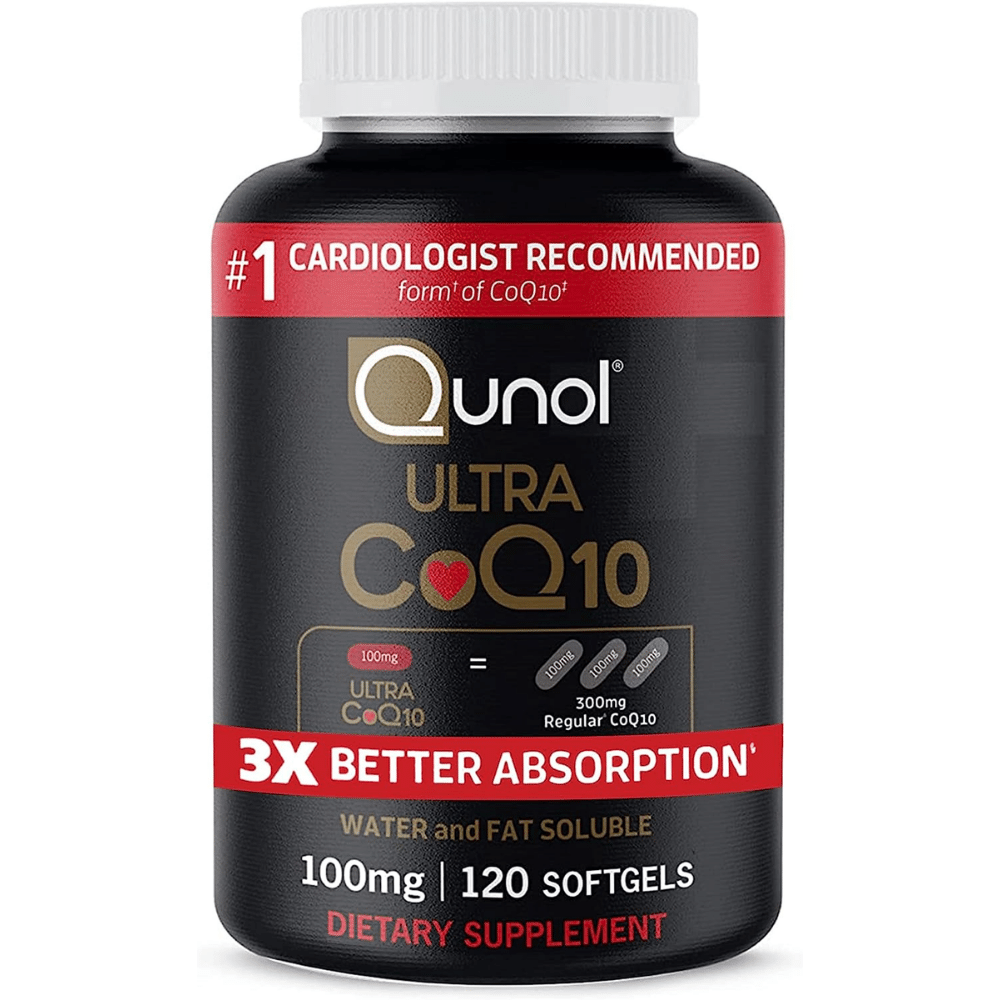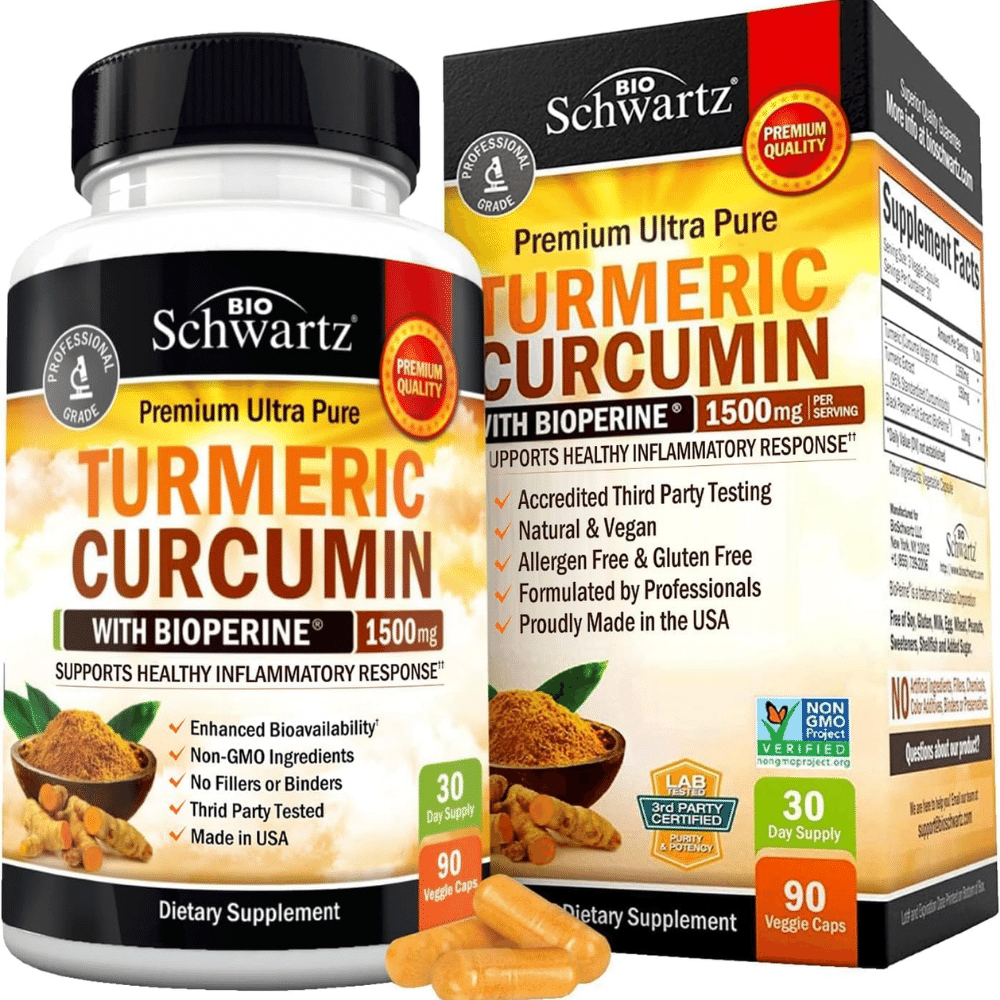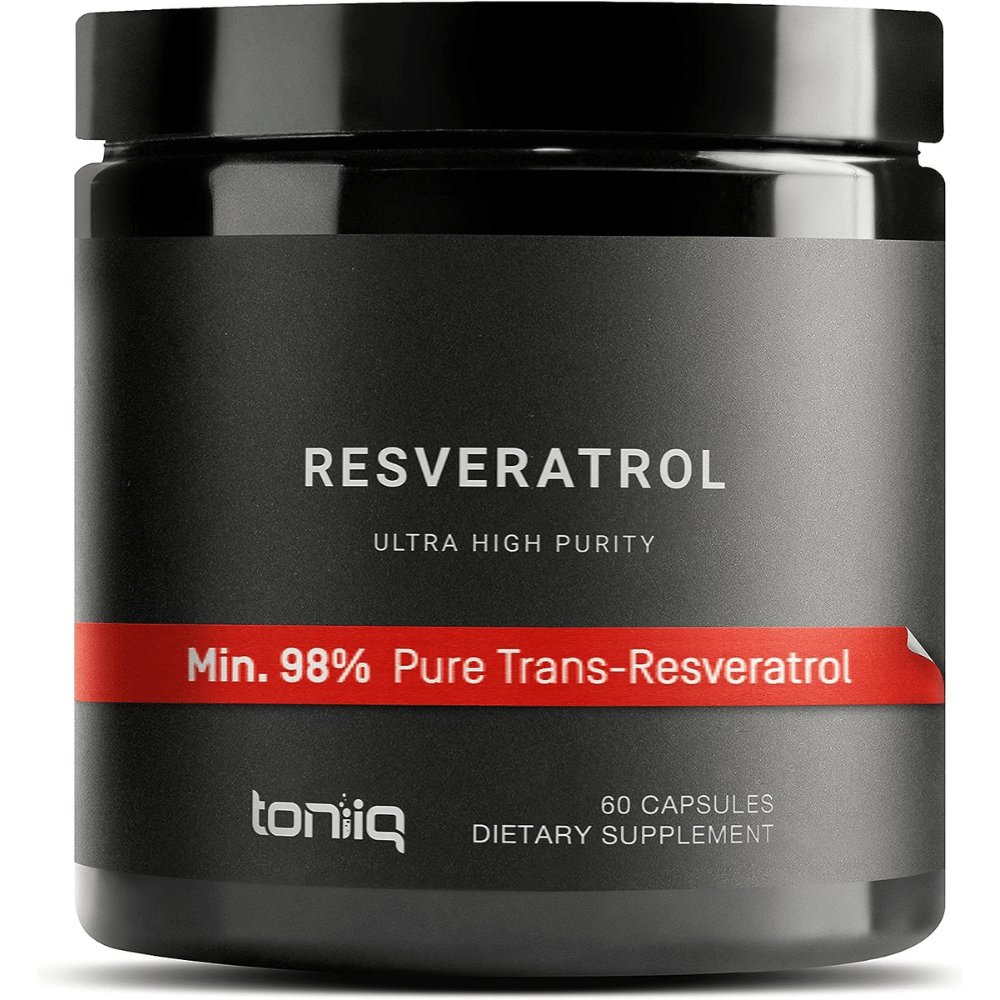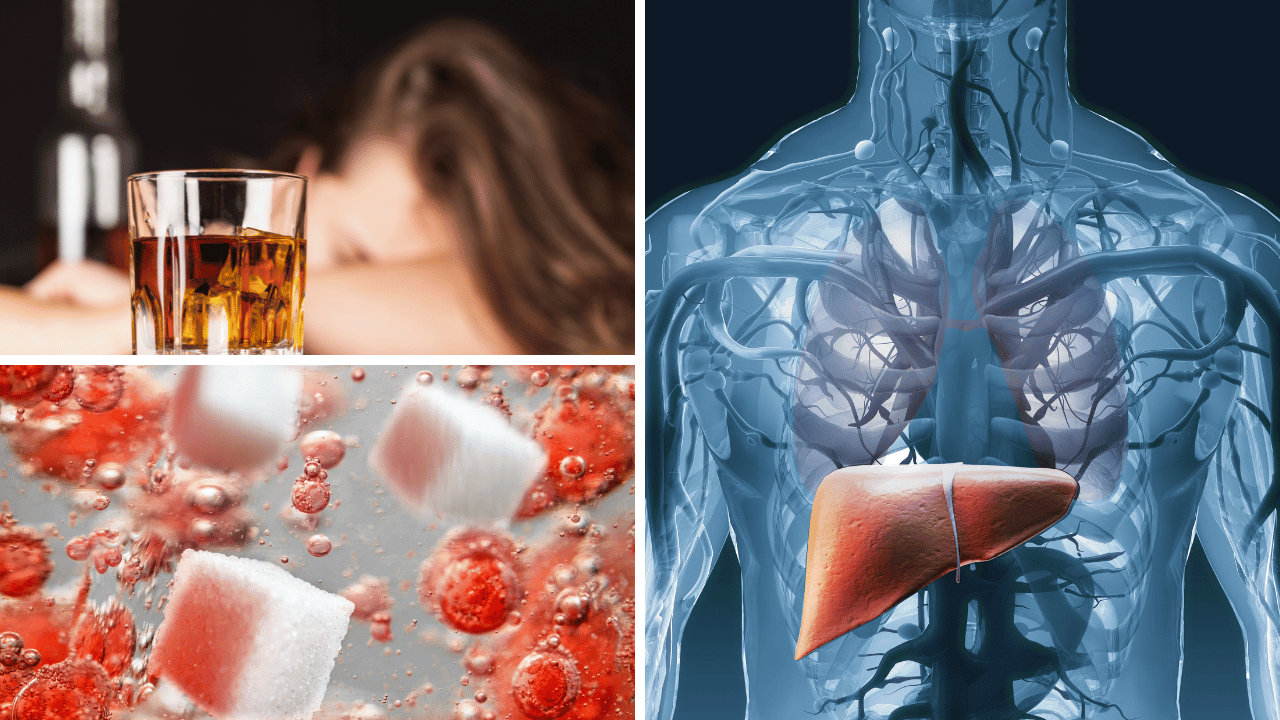As we age, it's natural to feel the pull of time and the desire to maintain our youthful vitality. Thankfully, advancements in science and nutrition have paved the way for a new realm of anti-aging supplements that can help you boost your health and turn back the clock.
In this article, we'll explore the world of anti-aging supplements, their benefits, and how they can help you maintain a vibrant and youthful life. So, if you're ready to unlock the secrets to a longer, healthier life, keep reading to discover the key to turning back the clock.
OVERVIEW
Anti-aging supplements are a category of dietary supplements specifically designed to combat the effects of aging on the human body. These supplements typically contain a combination of vitamins, minerals, and other natural compounds that work together to support overall health and wellness, while also targeting specific age-related concerns. Some common ingredients found in anti-aging supplements include antioxidants, omega-3 fatty acids, and collagen.
As we age, our bodies undergo a variety of changes that can impact our health and well-being. These changes often result in a decline in nutrient absorption, which can lead to a deficiency in essential vitamins and minerals. This is where anti-aging supplements come in – they provide seniors with a convenient and effective way to ensure they are getting the nutrients they need to maintain optimal health.

In addition to supporting overall health, anti-aging supplements can also help address specific age-related concerns, such as joint pain, cognitive decline, and weakened immune function. By incorporating these supplements into their daily routine, seniors can enjoy a higher quality of life and maintain their independence for as long as possible.
THE TOP FIVE ANTI-AGING SUPPLEMENTS FOR SENIORS
Fish Oil:
Fish oil is a supplement made from oily fish like salmon and sardines. It's full of omega-3s, which are good fats that help keep your brain and heart healthy.
As we get older, we might face more health issues like memory problems, heart disease, and long-term swelling in the body. Fish oil can help older adults by:
Lowering Swelling: Omega-3s can reduce body swelling, which is linked to diseases like arthritis and heart problems. Research shows that omega-3s can lower swelling markers in the blood.
Boosting Heart Health: Omega-3s help your heart by lowering bad fats in your blood, keeping blood pressure in check, and preventing blood clots. Studies suggest that omega-3s can slightly lower the chance of heart problems, especially for those who've had heart issues before.
Improving Brain Power: DHA, a type of omega-3, is important for the brain. Studies link higher DHA levels with better memory and thinking skills, especially in older adults who are starting to have memory issues.
The right amount of fish oil to take can vary. It's best to start with a small dose and talk to a doctor before taking more, as too much can cause stomach problems or a fishy taste in your mouth.
Coenzyme Q10 (CoQ10):
Coenzyme Q10, or CoQ10, is an important substance that helps our cells make energy and protects them from damage. It's made naturally in our bodies and is found in every cell, especially in the mitochondria, which are like tiny power plants inside our cells. CoQ10 is key for making ATP, the main energy source for our cells, and it also works as an antioxidant to fight off harmful molecules called free radicals that can hurt cells and lead to aging and diseases.
CoQ10 is especially good for the skin. It defends against harm from the sun's UV rays and other things in the environment, which can keep the skin healthy and may even slow down aging. It's also being looked at for its possible heart health benefits. As an antioxidant, CoQ10 might protect the heart and blood vessels from damage, which can help prevent heart-related problems. Some research suggests that taking extra CoQ10 could improve heart function in people with heart issues like congestive heart failure.
There's also interest in CoQ10 for brain health. It might guard against the mental decline that comes with age and support overall brain function. Early studies show that CoQ10 might help people with mild memory problems or early Alzheimer's, but we need more research to be sure.
Vitamin D:
Vitamin D is important for our health, especially for strong bones and teeth because it helps our bodies use calcium and phosphorus. Not having enough vitamin D can cause health problems like weak bones in both kids and adults. It also helps our immune system fight off sickness and might lower the risk of diseases like Alzheimer's, diabetes, and heart disease.
We can get vitamin D from sunlight, but things like age, skin color, where we live, and using sunscreen can make it harder for us to get enough of it. To get more vitamin D, we can eat foods like fatty fish (like salmon and tuna), egg yolks, and foods with added vitamin D like some milk, orange juice, and cereals. Sometimes, though, it's hard to get enough from food alone, and we might need to take extra vitamin D.
In short, vitamin D is key for keeping our bones strong and our bodies healthy, and we need to make sure we get enough from our diet or by taking supplements.
Curcumin:
Curcumin, found in the spice turmeric, is known for its health benefits. It comes from the Curcuma longa plant and is a bright yellow substance that fights inflammation and acts as an antioxidant. Scientists are looking into how curcumin might help slow aging and prevent diseases that come with getting older.
One key benefit of curcumin is its ability to control inflammation. Long-term, low-level inflammation is connected to diseases like heart disease, diabetes, and Alzheimer's. Curcumin can block substances in the body that cause inflammation, which might help avoid these diseases.
Also, curcumin fights off free radicals, harmful particles that can damage cells and speed up aging. By getting rid of these particles, curcumin helps keep cells healthy and reduces stress on them, which is good for overall health.
Curcumin is even thought to protect the brain. It can get into the brain and guard nerve cells, which may lower the chances of brain diseases like Alzheimer's and Parkinson's.
Although we need more studies to fully understand curcumin's benefits, its anti-inflammatory, antioxidant, and brain-protecting qualities could be useful in slowing aging and fighting age-related diseases. Remember to talk to a doctor before adding curcumin or any supplement to your health routine.
Resveratrol:
Resveratrol is a natural compound found in red wine, grape skins, and some fruits like blueberries. Scientists are interested in it because it might help keep us healthy as we age. It works as an antioxidant and fights inflammation, which can protect against heart disease and cancer. One important thing it does is activate a protein called SIRT1, which helps control how cells work and keeps inflammation in check. This might lower the chances of getting diseases that come with aging.
Resveratrol also helps keep our hearts healthy by making our blood vessels work better and preventing blood clots. It does this by boosting nitric oxide, which relaxes and widens blood vessels. Besides heart health, resveratrol might also stop cancer cells from growing and help them die off.
Most of the studies on resveratrol so far have been done in labs or on animals, not people. So, we need more research on humans to be sure about its benefits. Even though resveratrol seems promising, we should remember that we still have a lot to learn about it. To really understand how it affects our health, we need to look at both the good and the possible risks.

Top 5 Anti-aging Supplements- FAQs
What is the best supplement for over 60?
For individuals over 60, the best supplements can vary depending on individual needs, but some popular options include: Omega-3 for heart health, Vitamin D for bone health, Calcium for osteoporosis prevention, Magnesium for muscle function, and Coenzyme Q10 for energy production. Always consult with a healthcare professional before starting any supplement regimen.
What is the #1 vitamin you need after 60 for crepey skin?
The best vitamin for crepey skin after 60 is vitamin C, which helps in collagen synthesis and skin rejuvenation. It also has antioxidant properties that can protect the skin from environmental damage. However, consult with a healthcare professional before starting any supplement regimen.
What supplement makes you look younger?
To look younger, consider supplements like collagen for skin elasticity, CoQ10 for energy production and antioxidant effects, and omega-3 fatty acids for overall health and skin hydration. Remember to consult with a healthcare professional before starting any supplement regimen.
What are the best vitamins for 60-year-old woman?
The best vitamins for a 60-year-old woman include: Vitamin D for bone health, Calcium for osteoporosis prevention, Magnesium for muscle function, Omega-3 for heart health, and a multivitamin to cover any nutrient gaps. Consult with a healthcare professional before starting any supplement regimen.
Should 60-year-olds take a vitamin supplement?
Yes, a 60-year-old person should consider taking vitamin supplements like Vitamin D for bone health, Calcium for osteoporosis prevention, Magnesium for muscle function, and Omega-3 for heart health. Consult with a healthcare professional before starting any supplement regimen.

May we say in conclusion…
Anti-aging supplements have become increasingly popular among seniors seeking to maintain their health and vitality. Incorporating anti-aging supplements like omega-3 fatty acids, CoQ10, vitamin D, curcumin, and resveratrol into your daily routine may provide health benefits for seniors. As always, it is important to consult with a healthcare professional to ensure these supplements are safe and appropriate for your individual needs.



